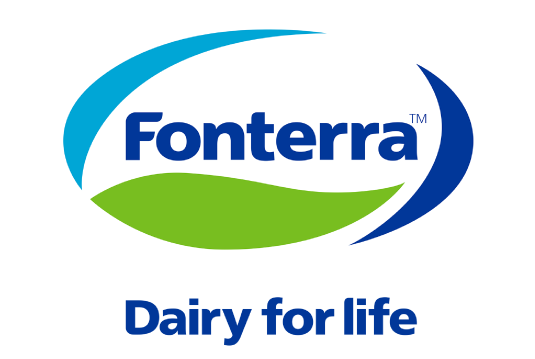How sustainability leads to success
Sustainability is a term that’s frequently used in and around our Co-op. We talk about helping our suppliers to farm sustainably, securing a sustainable milk supply, supporting sustainable communities and catchments and ensuring our products and packaging are sustainably produced and used.
But what exactly is sustainability and why is it important for our Co-op, our industry, our customers, and our consumers?
One of the ways we navigate these spaces is by consulting our Sustainability Advisory Panel.
The Panel is a group of six people from a wide variety of backgrounds who provide independent advice to Fonterra’s Board and Management on our strategy, targets and initiatives that relate to economic, social and environmental sustainability. In a nutshell, they help our Co-op to understand what we should be doing or doing better to be more sustainable, and why it matters.
Future Post makes fence posts out of recycled milk bottles
The Panel is chaired by Bridget Coates, who describes it as a ‘friendly critic’.
“We have a very diverse membership and we don’t have a vested interest in the Co-op as such”, says Bridget. “We can see things from a different perspective and this lens means we can constructively criticise, be provocative, and hopefully stimulate discussion.”
The Panel was originally brought together by a well-known environmentalist and businessman Sir Rob Fenwick. Bridget took over as chair following Sir Rob’s death last year and she says he remains an inspiration to the Panel’s members.
We can see things from a different perspective and this lens means we can constructively criticise, be provocative, and hopefully stimulate discussion.
“We miss his leadership very much. He set us on a pathway which is a long way from completion, but the clear agenda he set means that we are dedicated to driving forward at pace.”
Sir Rob used to say sustainability is an over-used and misunderstood expression, and Bridget agrees that with no ‘one-size-fits-all’ template, defining sustainability is challenging.
“Sustainability to me is a complex nexus of different factors. It’s not just about caring for the environment, although for Fonterra and its farmers that is certainly a big part of the discussion. Sustainability should encompass every aspect of a business, so in Fonterra’s case should include, but not be limited to, respect for people, communities and animals, and commitment to production of high-quality, safe and nutritious food with a low carbon footprint.
Sustainability should encompass every aspect of a business, so in Fonterra’s case that should include, but not be limited to, respect for people, communities and animals, and commitment to production of high-quality, safe and nutritious food with a low carbon footprint.
“Fonterra and the dairy industry are at the absolute heart of New Zealand’s future. Sustainability is at the centre of that position and Fonterra’s sustainability ambitions are linked to a number of key questions.
For example, can the Co-op provide healthy high-quality nutrition for growing populations in a way that regenerates, not depletes, the natural environment and provides sufficient financial reward for farmers? Can Fonterra continue to farm and operate in New Zealand with the blessing and support of our communities? And, can it accelerate change by committing to becoming an enduring, value-adding, innovative and low carbon business?
The boiler at our Te Awamutu site now burns wood pellets instead of coal
Anchor milk bottles are recycled to make shampoo, conditioner and body lotion bottles used by SKYCITY
“Of course, there are technical barriers to achieving what most people want, and some of these barriers will take some time to overcome. But there has been a lot of progress over the last several years in a whole range of different areas, not just at Fonterra, but also by researchers in NZ and around the world.”
With an impressive array of former and current governance roles*, Bridget is uniquely qualified to chair the Sustainability Advisory Panel. Included in these roles is Chairperson of White Cloud Dairy Innovation, which launched a consumer dairy brand into the US market (Kura Nutrition), based on high-quality NZ dairy a few years ago. Bridget says she’ has seen first-hand the value associated with New Zealand’s provenance story.
“New Zealand is among the sustainability leaders of the world. Our country’s brand is one aligned closely with the production of safe, healthy food with a relatively low carbon footprint and with high social and environmental values – treating land, water, people, and animals with care and consideration.”
This reputation has arguably been significantly enhanced by our response to COVID-19. With tourism compromised for the next few years, the strength of the food sector is even more critical to our economy. Bridget says this means focusing on areas of sustainability is increasingly important.
“While there is no doubt COVID-19 has caused a lot of social and economic disruption and harm, it also presents an opportunity for our country. As we re-establish some of our institutions we have the chance to do it in a really mindful and values-driven way to embed sustainability practices – ‘building back better’ instead of just putting back things the way they might have been.”
*Bridget’s governance roles include:
- Chairperson of White Cloud Dairy Innovation
- Former Director of the Reserve Bank of New Zealand
- Director of Tegel Group Holdings Ltd. and Chair of Tegel’s Audit Committee.
- Chair of the Real Estate Institute of New Zealand
- Former Director of the New Zealand Superannuation Fund
- Former Director of Sky City Limited
- Former Director of Fisher & Paykel Appliances Holdings Limited.
- Former Director of Research for CS First Boston NZ Ltd
- Inaugural Chair of THE ICEHOUSE.
- Former Director of the New York-based 212° Equity Management LLC
- Inaugural Chair of ArcAngels in New Zealand

